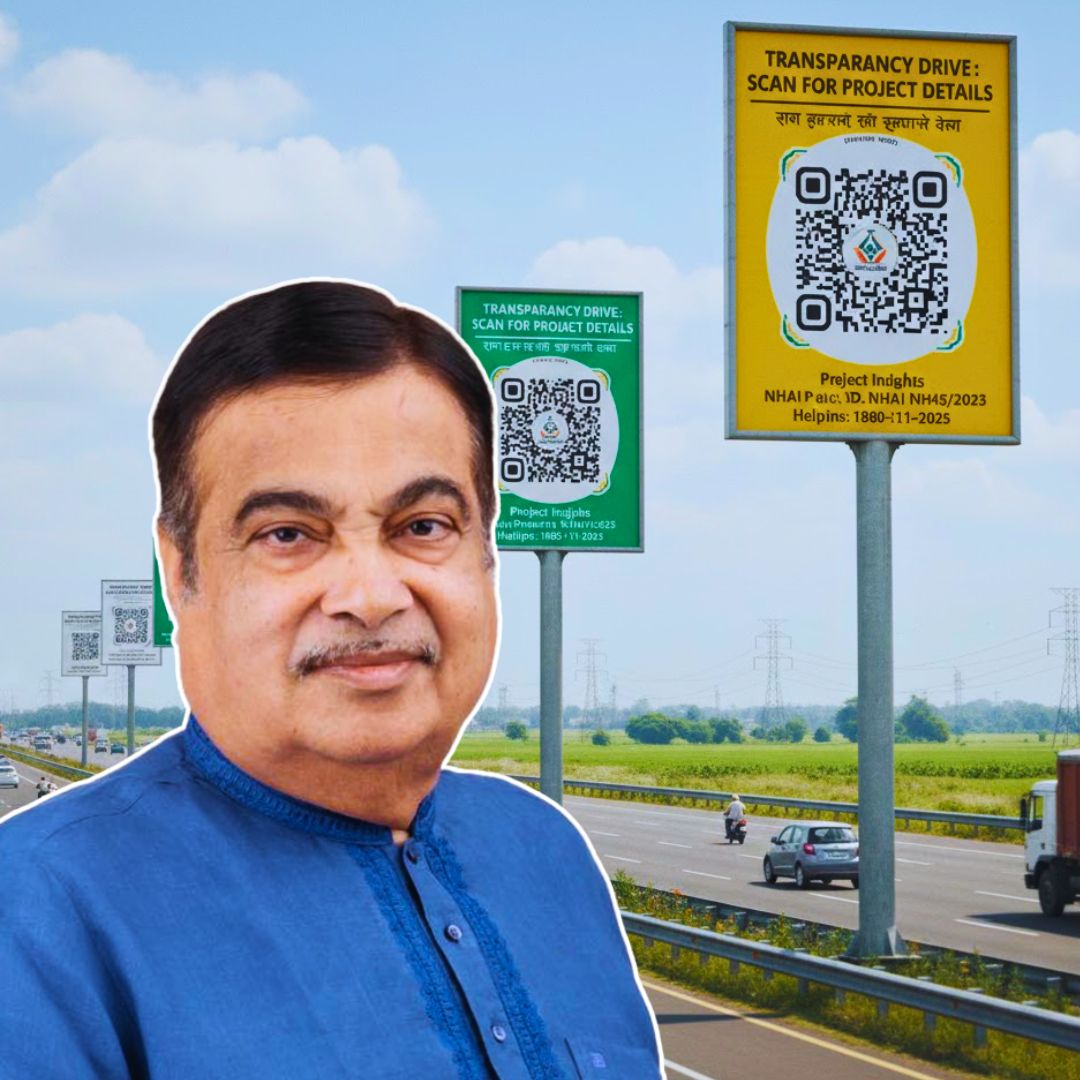Union Road Transport and Highways Minister Nitin Gadkari has announced a landmark move to bolster transparency and accountability in India’s highway projects by mandating QR codes on information boards along national highways.
These QR codes, when scanned, will reveal the names and contact details of contractors and officials responsible for the project, as well as financial information and emergency contacts. The initiative follows rising public demand for infrastructure accountability and was inspired by viral social media advocacy.
This public-friendly system is set to be rolled out across the country, with the aim of reducing corruption, improving road quality, and saving lives.
Transparency Drive: How QR Codes Will Work
Announced at a Confederation of Indian Industry conference in New Delhi, Gadkari’s new policy will see information boards placed on every national highway, each board fitted with a QR code for easy public access.
By simply scanning the QR code with a smartphone, any citizen can instantly know who built the road, who approved it, which ministry handled it, the project’s cost, and which officials are answerable for its condition. This system extends to offering emergency helpline numbers and maintenance contact details as well.
Gadkari said, “Why should I solely take the blame for all roads? From now on, every bad road will reveal the precise officials, contractors, and consultants involved.” The Minister emphasised that contractors are contractually bound to maintain completed roads for a minimum of 10 years, and any defects must be rectified at their expense. This policy comes amid a series of national audits and stricter oversight on road quality and project timelines.
Citizen Advocacy Shapes Policy
Behind this much-lauded announcement lies a powerful wave of public demand for greater transparency. In mid-2025, Bengaluru-based entrepreneur Anuradha Tiwari went viral on social media after pointing out the discrepancy between consumer and public infrastructure transparency.
“If a ₹5 biscuit can show all its details, why not a ₹100 crore road?” she asked, sparking widespread calls for a public database of road project information.
Responding to these citizen demands, Gadkari acknowledged the need to empower commuters, not just with infrastructure but also with information. The new system, closely mirroring Tiwari’s proposal, will allow users to see not just which company or ‘babu’ was responsible, but also the cost, the political leadership involved, and the firm in charge of maintenance.
Anuradha Tiwari took to X (formerly Twitter) to celebrate the move, calling it a “big win” for those demanding industry-wide accountability.
Context: India’s Road Safety and Accountability Crisis
The urgency of this initiative is underscored by sobering statistics. Over 26,000 people lost their lives on India’s national highways in just the first half of 2025, according to official sources. Critics have long pointed to poor accountability as a major contributor to dangerous road conditions, slow repairs, and contractor impunity.
Netizens and citizen activists, echoing Anuradha Tiwari’s arguments, have lamented that while contractors amass profits, the public faces potholes, unfinished stretches, and accident risks.
India’s road infrastructure is among the fastest-growing in the world, with the Ministry of Road Transport and Highways collecting ₹55,000 crore in revenue annually-a figure expected to more than double in just two years. However, transparency in spending and project execution remains a persistent issue.
Gadkari stated that performance audits are underway and strict action will be taken against those responsible for substandard or delayed work, making the QR code initiative a part of a broader accountability reform.
What Details Will The QR Codes Reveal?
According to ministry releases and statements, the QR code system will provide:
- The name, address, and mobile number of the main contractor
- Names and contact details of the responsible executive engineer, project manager, and key ministry officials
- Project expenditure and scope
- State chief minister and ministers involved at various stages
- Name and contact of the maintenance firm or supervisor post-completion
- Emergency highway helpline numbers
By making these details public, the government seeks to ensure that complaints, suggestions, and grievances reach the right departments without bureaucratic delay.
Industry and Citizen Reactions
Reactions to the announcement have been overwhelmingly positive. Many on social media have dubbed the move a “citizen-driven victory,” highlighting the power of collective online advocacy. Stakeholders in the infrastructure sector, including NHAI and private contractors, have publicly welcomed the step, albeit with some concerns about potential misuse of personal information and added operational overhead.
Officials believe the policy will motivate all involved-government agencies, contractors, and consultants—to adhere more strictly to quality standards and deadlines. With the added scrutiny, the expectation is that substandard work can be identified and addressed swiftly, and ethical practices rewarded.
The Logical Indian’s Perspective
The Logical Indian views this major policy change as a milestone in participatory democracy and transparency. By linking every kilometre of highway to a digital record accessible via a QR code, India signals its commitment to dialogue, accountability, and public-spirited governance.
The government’s responsiveness to citizen advocacy further demonstrates that constructive public engagement can spark real, systemic improvement.











